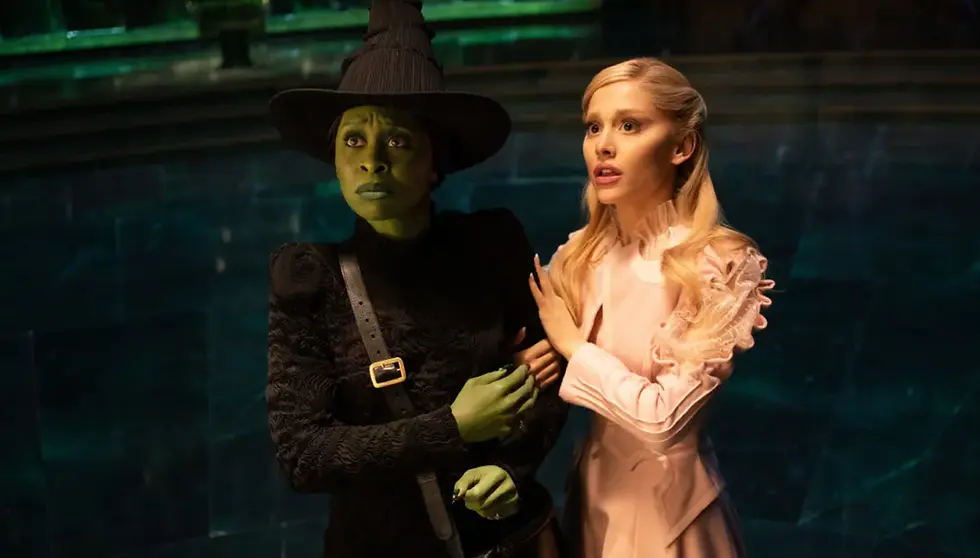Barbie (2023 film)
- comaweng
- Sep 3, 2023
- 3 min read

According to the movie’s own narrative, before the Barbie doll was invented (by, as it is much later revealed in the film, by Ruth Handler (1916-2002) (Rhea Perlman)), girls only ever played with baby dolls, and could only therefore perform the function of mothers. Then came Barbie the fashion doll, and as soon as it arrived, every girl in the industrialised world smashed their baby dolls to smithereens and played only with Barbie dolls. Allegedly, they had no other pastimes or activities, either alone or with friends, of any description whatsoever. Just Barbie, Barbie, and more Barbie, a trend which continued into the digital era.
But the motion picture seems to have just about enough self-awareness to understand that anyone who believes that is naïve in the extreme. Dame Helen Mirren narrates, with a dry and observant wit: “Thanks to Barbie, all problems of feminism and equal rights have been solved”. And it is a story that has to be taken with several pinches of salt – and pepper, and whatever the other herbs and spices there are that comprise the recipe for KFC chicken pieces. It is, fundamentally, centrist: portraying ‘Barbieland’ as a world where women truly can be anything they want to be – within reason – but even this matriarchal society has its flaws, especially with regards to discontinued models, who are treated with disdain and ridicule. One of them is even called Weird Barbie (Kate McKinnon).
Sasha (Ariana Greenblatt), a schoolgirl, provides Stereotypical Barbie (Margot Robbie) with an alternative viewpoint to the pro-Barbie philosophy, believing the Barbie franchise contributed to prevailing obsessions in society over the female body. “You set the feminist movement back fifty years. You destroyed girls’ innate sense of self-worth.” But she oversteps the mark by calling Barbie ‘fascist’, and with justification, Barbie is confused. “How can I be a fascist? I don’t control the railways or the flow of commerce!”
In Barbieland, almost everyone is either called Barbie or Ken – and it’s all very binary. Oh, and you can forget LGBTQ(WERTYUIOP) – the queendom hasn’t evolved to accommodate Trans Barbie. Accordingly, the dialogue in one of the opening scenes goes like this.
Ken: Hi, Barbie!
Barbie: Hi, Ken!
Barbie: Hi, Barbie!
Barbie: Hi, Barbie!
Barbie: Hi, Barbie!
Barbie: Hi, Barbie!
Barbie: Hi, Barbie!
Ken: Hi, Barbie!
Barbie: Hi, Ken!
Ken: Hi, Ken!
Then there’s Allan (Michael Cera), “just Allan”, and there are no other Allans. He’s the equivalent of “and Peggy” in the musical Hamilton, someone who is there, and even gets their own lines from time to time, but is ultimately quite superfluous and a little boring.
Spoilers ahead. Sorry, but it’s rather unavoidable. Stereotypical Barbie must travel to the ‘real world’ to correct a ‘malfunction’. The headquarters of Mattel, manufacturers of Barbie, are informed Barbie has crossed over from Barbieland to Earth, and set about (as I understood it) literally and figuratively putting her back in a box, with a view to restoring default factory settings and send her back to Barbieland, malfunctions corrected. But it doesn’t quite happen like that. The twist is that Ken (Ryan Gosling), or ‘Beach Ken’ – there is a ‘Stereotypical Ken’ (Scott Evans) but he features less prominently – has persuaded Stereotypical Barbie to let him go with her to the real world. Beach Ken’s desire to visit a library is a subtle way of showing he is not, after all, completely stupid – his resulting actions on his return to Barbieland, having picked up on the patriarchal nature of American society, demonstrate considerable persuasive and organisational skills.
Not being a movie specialist (to be honest, I only decided to see this film as I had the afternoon available on National Cinema Day, for which tickets for any screening at my local picture house were £3) whatever references and homages there may have been to other movies went completely over my head. I’m still not sure what to make of Gloria (America Ferrera), a Mattel employee who goes into a rather heavy rant late in the movie about how impossible it is to live as a woman because “not only are you doing everything wrong, but also everything is your fault”. It drives home the point she, and the movie, wants to make, but in the theatre, this would almost certainly be considered too preachy, too blunt, lacking in nuance, playing to the gallery, cringeworthy and hammy.
As for intellectual rigour, perhaps the movie is a little condescending on its audiences, providing repeated explanations. Then again, the alternative would be worse, and it’s better for a film to be easily understood than not to be understood at all. It’s perhaps not the best movie ever made, but by far from the worst.




Comments